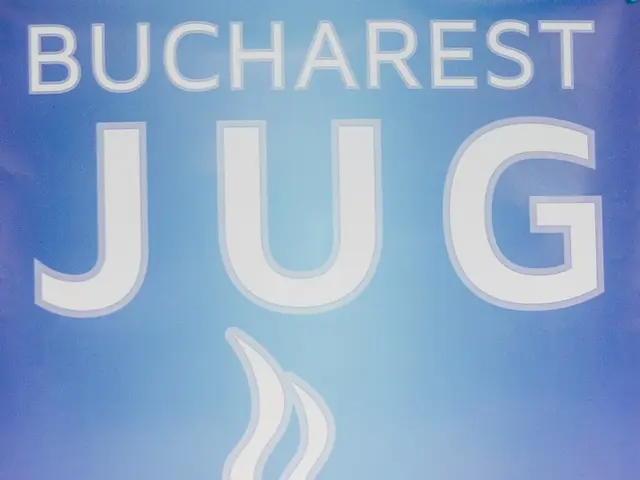The AI Music Problem: When Computers Remix Without Permission
"Music Industry Delves Deeper into Underground Territories"
Every day, a whopping 20,000 AI-generated songs flood streaming platforms, often based on the works of human artists who aren't given a dime. Musicians are crying foul and demanding more transparency—and fair payment.
From composing melodies to crafting lyrics, music created by computers on demand is not just possible, it's a reality. But there's a catch—these AI models use works by human artists as templates, without their consent. This is like someone using your book and selling a copy without giving you credit or royalties.
Take Deezer, for instance. This streaming service receives 20,000 fully AI-generated songs daily, as they announced back in April. Though these songs may not be as exceptional as human-crafted works, they still pose a problem. British singer Levina, who leads a council for musicians' rights, says the sheer volume of music online makes it hard for artists to stand out. And when so much of it is AI-generated, it just makes the challenge even steeper.
"That's just not right"
Most musicians wouldn't automatically oppose AI, says Christopher Annen of the musicians' union Pro Musik. AI can ignite creative inspiration, but he raises concerns about providers taking their songs and generating wealth while investing heart and personal stories into their work. "It's not fair," says Annen, a member of the band AnnenMayKantereit.
The unequal distribution of earnings isn't a new problem for musicians. AI is simply fueling a long-burning fire, says Matthias Hornschuh of the "Copyright Initiative." On today's dominant streaming services, much of the earnings has been eluding the majority for a while. A government-funded study puts it in numbers: In 2023, 75% of all streaming service revenues went to just 0.1% of artists.
The German collecting society GEMA fears that AI might worsen this issue. This society represents the copyrights of nearly 95,000 members in the German music industry and estimates that 27% of authors' earnings could be at risk, causing losses of over 2.7 billion euros in Germany and France by 2028.
AI Plagiarism of Helene Fischer and Lou Bega's "Mambo No. 5"
GEMA is now taking legal action against providers who plagiarize their music. In January 2023, they filed a lawsuit against OpenAI, the provider of ChatGPT, claiming they have trained their AI on popular songs like "Breathless Through the Night" by Helene Fischer and "Mambo No. 5" by Lou Bega, infringing on the rights of the creators.
Transparency Is Key to This Issue
More transparency is needed, say musicians. Streaming services should display which music comes from AI to ensure fairness and appropriate compensation. Artists need more openness in payment, says Levina. "No one knows exactly what happens behind the scenes and how much money goes where," she adds. In her opinion, it's crucial for musicians to continue advocating for their rights so the music industry doesn't sink any further.
But Annen believes AI can't match one thing—emotions. "Music can make you feel less alone because this emotion has been experienced by another human," he says. "However, a song that comes entirely from the machine can't evoke those feelings because the AI didn't have a broken heart."
- Germany
- Music
- Digital Music
- OpenAI
- In Germany, the employment policy and community policy need to address the growing issue of AI-generated music, ensuring that creators are fairly compensated and given credit, especially as these issues extend to transnational platforms such as streaming services.
- Technology advances in music, like AI music remixing, should not only be considered for their creative potential but also for their impact on employment, entertainment, and the fair distribution of earned royalties, as seen in the case of OpenAI's use of popular songs by human artists.








